Director: Fruit Chan
Cast: Wong You Nam, Janice Man Wing San, Kara Hui Ying Hung, Simon Yam, Sam Lee, Chui Tien You, Lam Suet, Vincci Cheuk Wan Chi, Fiona Sit Hoi Kei
Running Time: 124 min.
By Kelly Warner
I haven’t seen a whole lot of director Fruit Chan’s work, but I’ve seen enough to know that the man doesn’t pull punches and is fully capable of shocking an entire audience full of people. Take Three Extremes for example, an anthology horror film featuring three shorts from a few of Asia’s most extreme filmmakers including Chan-wook Park (Oldboy), Takashi Miike (Audition), and Fruit Chan (Made in Hong Kong). As a fan of both Park and Miike, I was stunned to find that the less well-known Chan had actually delivered the most unflinching thriller of that anthology. His short film Dumplings (which he later made into a feature length film) is horrifying. It’s the sort of horror story that, upon eventually revisiting Three Extremes, I may actually skip Chan’s entry because it disturbed me so much. So, it was with some dread that I wandered into the world of Fruit Chan’s 2014 horror film, The Midnight After.
The Midnight After is based on an online novel written by the Hong Kong author, Pizza (to any writers out there: don’t worry about your silly sounding pen name. This Pizza guy did just fine). The original story was called Lost on a Red Mini Bus to Tai Po. Apparently it was something of an interesting success story for young Mr. Pizza, as the novel was first published on a forum as a serial and then later put to paper for bookstores. The story can be likened to multiple speculative fiction sources, from The Twilight Zone to The Mist, but perhaps the most obvious of which can be picked out from the work’s original title; Lost. Like the ABC hit, a group of strangers boards a vehicle (a bus instead of a plane, in this case) and, before they reach their destination, finds themselves in a world that doesn’t make sense.
The bus goes into a tunnel and when it comes out, the streets are empty. In the city of Tai Po, the lights are on but nobody’s home. Realizing that something is amiss, everyone calls their loved ones via their cell phones, but they can’t get anybody to answer. Even the police don’t answer the phone. Group dynamics begin to break down and people split up, intent on searching the city by themselves or in smaller groups, with the understanding that they will meet up again in the morning. During their search, each member of the group is simultaneously contacted over the phone, only to hear a screeching signal coming from the other line. When they meet up again later, they sort out the facts: the city is deserted, a man in a gas mask was spotted once, and this all has something to do with an old David Bowie song. Oh, and people have a tendency to spontaneously combust or suddenly turn into stone, which is strange but also not the strangest thing you’ll see in this movie. All the characters have different reactions to these troubling events. Most characters in the movie are archetypes, like the hotheaded former athlete (Kill Zone 2’s Simon Yam), a tech expert (Contagion’s Chui Tien You), a mysterious young woman (Nightfall’s Janice Man), an angry bus driver (Trivisa’s Lam Suet), and an underachiever who’s both our most relatable and our most suspicious character (Gallants’ Wong You Nam). Though the characters are written broadly, each actor brings a lot to the ensemble, selling both the fear and the absurdity of their situation.
The film begins as a creepy look at a silent sort of apocalypse, like the world’s moved on and left our group behind. And like the characters of Lost, the bus passengers have all sorts of big theories, some of which may sound familiar to fans of the show (most notably, what if we’re all dead?). But by the time the nerd of the group jumps on a table and starts singing Space Oddity with a broom for a guitar and a toilet scrubber as a microphone, the audience realizes that all bets are off. Things are now allowed to get really, really weird. And they do! And for the most part, it’s an immensely satisfying experience, mixing comedy, sci-fi, and horror to great success. But, like Lost, The Midnight After poses more questions than it is willing to answer.
The film ends before solving the majority of its mysteries. It’s frustrating, because up until that point I was happy to be along for the ride. Then, it felt like it’d been a ride to nowhere. It just ends, leaving you hanging. Imagine if Lost got cancelled half-way through the series. And believe me, I’m not someone that needs all questions answered by the end… but answering one or two of the big, lingering questions would’ve been nice. Is a Midnight After sequel forthcoming? I hope so.
The Midnight After has some politics on its mind, most of which will go over the head of Western viewers (including myself at times). Comments about the next Chief Executive and metaphors for leaving Hong Kong are somewhat lost in translation. Allusions to Fukushima, a disaster I think we all know something about, also don’t make that much sense in the greater scheme of things. One can’t help but think that the film likely means more to a domestic audience than it ever could to someone like me, watching it half a world away.
Some issues aside, I enjoyed The Midnight After. It’s clever science fiction with a wicked sense of humor. Hong Kong doesn’t make many of these sorts of movies, something that one of the characters from the film seems fully aware of when she exclaims, “Hong Kong doesn’t do sci-fi!” Well, maybe they should. Science fiction is one of the best genres for expressing anger against events that appear beyond our control. That seems to be what Fruit Chan has done here, making a flashy and crazy film by which to sneak in some comments about Hong Kong and the current state of things. I may not have understood all of the politics in play but I enjoyed my time with these characters in the weird, abandoned world they occupy.
If there’s a sequel—and there better be!—I’m going to be one of the first in line.
Kelly Warner’s Rating: 7/10






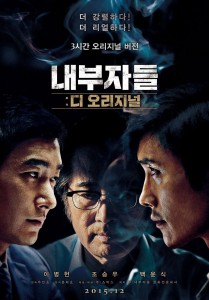


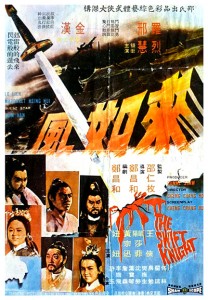
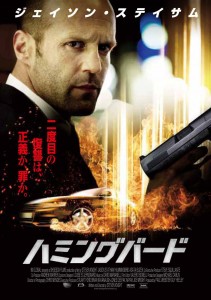



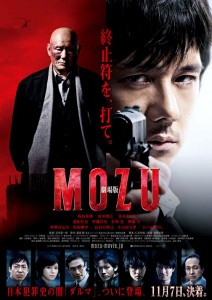



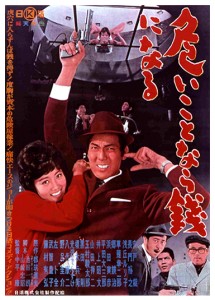
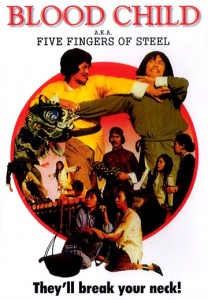




2 Comments